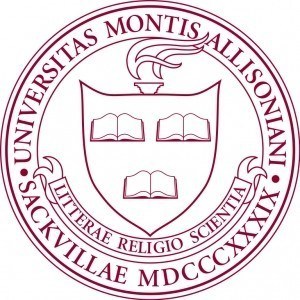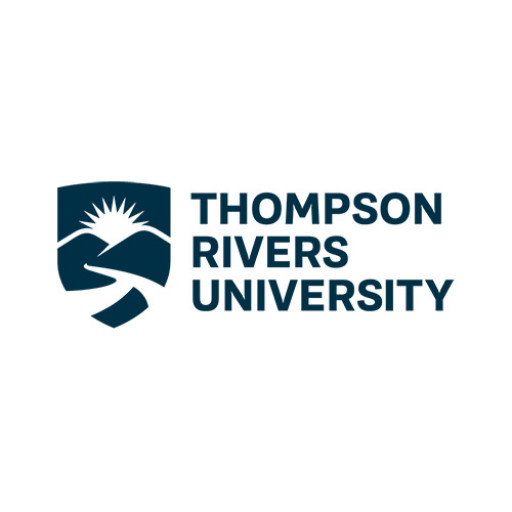Photos of university / #mountallison
The Religious Studies program at Mount Allison University offers students an in-depth exploration of the diverse beliefs, practices, and historical developments associated with religions around the world. This interdisciplinary program combines courses in history, philosophy, sociology, anthropology, and literature to provide a comprehensive understanding of religious traditions and their impact on society, culture, and individual identity. Students will examine major world religions such as Christianity, Islam, Hinduism, Buddhism, Judaism, and indigenous spiritualities, while also engaging with contemporary issues related to religion and secularism, ethics, and social justice. The program emphasizes critical thinking, cultural awareness, and analytical skills, enabling graduates to engage thoughtfully with complex religious questions and to contribute meaningfully to discussions on religion in both academic and public contexts. Through a combination of lecture-based learning, readings of primary religious texts, and opportunities for research and community engagement, students develop a nuanced understanding of the role of religion throughout history and in modern society. The curriculum encourages students to explore the philosophical foundations of religious beliefs, the sociological effects of religious institutions, and the artistic expressions associated with faith. Employing a global perspective, the program prepares graduates for diverse careers in education, community service, government, non-profit organizations, and media, where knowledge of religious diversity and intercultural competence are increasingly valued. Whether students are interested in pursuing graduate studies or seeking to deepen their understanding of religious phenomena, the program provides rigorous academic training grounded in critical inquiry. In addition to coursework, students have access to faculty-led seminars, internships, and study-abroad opportunities that enhance their educational experience. With a commitment to fostering respectful dialogue and understanding among different faiths and perspectives, the Religious Studies program at Mount Allison seeks to cultivate informed, empathetic individuals equipped to navigate the complex religious landscape of the contemporary world.
The Religious Studies program at Mount Allison University offers students an in-depth exploration of diverse religious traditions, beliefs, practices, and their roles in shaping human culture and history. This interdisciplinary program emphasizes critical thinking, analytical skills, and a broad understanding of religious phenomena across different contexts and societies. Students will examine major world religions such as Christianity, Islam, Hinduism, Buddhism, Judaism, and other spiritual traditions, while also engaging with contemporary issues related to religion, ethics, and society.
Throughout the curriculum, students are encouraged to analyze sacred texts, rituals, and religious artworks, and to consider questions about faith, spirituality, and the relationship between religion and other social institutions. The program combines theoretical approaches with practical insights, fostering a comprehensive understanding of how religion influences politics, culture, identity, and social justice. Courses include topics such as Comparative Religion, Philosophy of Religion, Religion and Society, and Indigenous Spiritualities, among others.
In addition to classroom learning, students have opportunities for research projects, fieldwork, and internships that enhance their understanding of religious communities and issues. The program prepares graduates for diverse career paths, including education, community work, public policy, journalism, nonprofit organizations, and further academic study. Mount Allison’s Religious Studies program is committed to fostering respectful dialogue, intercultural understanding, and critical engagement with religious diversity in a globalized world. Graduates will leave equipped with the knowledge and skills necessary to contribute thoughtfully and ethically to discussions about religion and society.
The Bachelor of Arts in Religious Studies at Mount Allison University offers a comprehensive exploration of religious traditions, texts, beliefs, practices, and their impacts on societies throughout history and in contemporary contexts. The program is designed to develop students' critical thinking, analytical skills, and understanding of diverse religious phenomena. To earn this degree, students are required to complete a total of 40 course credits, which include core courses, electives, and a possible capstone or research project. The core curriculum typically includes foundational courses in Religious Studies that introduce students to major world religions such as Christianity, Islam, Hinduism, Buddhism, Judaism, and Indigenous spiritual traditions. In addition, students study religious texts, philosophical and ethical issues, and contemporary religious issues.
Electives allow students to specialize or broaden their understanding by choosing from courses covering topics like religious history, theology, mystical traditions, religious art and literature, gender and sexuality in religion, and religion and society. The program emphasizes the development of analytical reading and writing skills, encouraging students to critically examine religious beliefs and practices from multiple perspectives. Opportunities for experiential learning, internships, or community engagement may be available, providing practical experience related to religious communities and organizations.
Students are also expected to complete a research paper or project in their final year, demonstrating their ability to conduct independent scholarly inquiry in the field of Religious Studies. The program prepares graduates for careers in education, community work, religious organizations, or further academic study. Overall, the Bachelor of Arts in Religious Studies at Mount Allison University is a rigorous and intellectually stimulating program aimed at fostering understanding and dialogue among diverse religious traditions and beliefs, equipping students with essential skills for engaging in a multi-faith world.
Want to improve your English level for admission?
Prepare for the program requirements with English Online by the British Council.
- ✔️ Flexible study schedule
- ✔️ Experienced teachers
- ✔️ Certificate upon completion
📘 Recommended for students with an IELTS level of 6.0 or below.
The Religious Studies program at Mount Allison University offers students various financing options to support their education. Tuition fees for undergraduate programs are published annually by the university and vary depending on the year of study and residency status. Domestic students benefit from relatively affordable tuition rates, while international students are subject to higher fees. In addition to tuition, students should consider additional expenses such as textbooks, supplies, and living costs. Mount Allison University provides a range of financial assistance, including scholarships, bursaries, and awards based on academic achievement, financial need, or specific criteria related to the Religious Studies program. Scholarships may be renewable or one-time awards and are usually competitive. Prospective students are encouraged to apply early and provide required documentation to be considered for these awards. The university also offers work-study programs that allow students to work part-time on or off-campus to help finance their studies. Federal and provincial student loan programs are available for eligible students who qualify, providing low-interest loans that can be repaid after graduation. Mount Allison University has robust financial aid offices to guide students through application processes, eligibility criteria, and deadlines. Many students also seek external funding sources, including private scholarships and awards from religious or community organizations associated with their interests in religious studies. Cost of attendance varies and can be managed through careful planning and utilization of available financial support options. Financial aid packages are often customized to meet individual student needs, and students are encouraged to consult the university’s official website or contact the Financial Aid Office for detailed and updated information. Overall, Mount Allison University strives to make religious studies accessible through diverse funding opportunities, ensuring that students can pursue their academic passions without undue financial hardship.
The Religious Studies program at Mount Allison University offers students an in-depth exploration of religious beliefs, practices, historical developments, and cultural impacts across various traditions worldwide. This interdisciplinary program is designed to foster critical thinking, contextual understanding, and analytical skills by examining religious texts, rituals, ethical issues, and contemporary religious movements. Students in this program have the opportunity to study major world religions such as Christianity, Islam, Hinduism, Buddhism, Judaism, and indigenous belief systems, as well as lesser-known faiths and new religious movements.
The curriculum includes courses on religious philosophy, the history of religion, religious ethics, and the role of religion in society. Emphasis is placed on developing interpretative skills and understanding diverse perspectives. The program encourages students to engage with primary sources and conduct independent research, often incorporating a variety of methodological approaches from anthropology, history, philosophy, and literature. Students may also examine the influence of religion on art, politics, gender, and social justice issues, gaining a holistic understanding of religion's role in shaping human culture.
Students enrolled in the Religious Studies program at Mount Allison can take advantage of various academic and extracurricular opportunities. These include visiting speakers, participation in religious and cultural events, and potential internships or community engagement projects. The program prepares graduates for diverse careers, including education, social services, community work, law, and further academic pursuits, such as graduate or theological studies.
The faculty is dedicated to fostering an inclusive environment where students can critically explore religious diversity and develop informed, respectful perspectives. Mount Allison’s smaller class sizes facilitate personalized instruction and mentorship, enhancing the educational experience. Overall, the program aims to equip students with a nuanced understanding of religious phenomena, promoting cultural literacy and intercultural dialogue essential in today’s globalized world.


